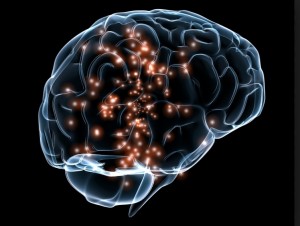Dear Commons Community,
Gary Marcus, a professor of psychology at New York University, and an editor of the forthcoming book The Future of the Brain: Essays by the World’s Leading Neuroscientists, comments on two major funding proposals for studying the brain in an op-ed piece in the New York Times. Essentially he posits that science knows so little about brain function that we have not even formulated the right questions to ask about how to study it. Here is an excerpt:
“In spite of the many remarkable advances in neuroscience, you might get the sinking feeling that we are not always going about brain science in the best possible way.
This feeling was given prominent public expression on Monday, when hundreds of neuroscientists from all over the world issued an indignant open letter to the European Commission, which is funding the Human Brain Project, an approximately $1.6 billion effort that aims to build a complete computer simulation of the human brain. The letter charges that the project is “overly narrow” in approach and not “well conceived.” While no neuroscientist doubts that a faithful-to-life brain simulation would ultimately be tremendously useful, some have called the project “radically premature.” The controversy serves as a reminder that we scientists are not only far from a comprehensive explanation of how the brain works; we’re also not even in agreement about the best way to study it, or what questions we should be asking.
The European Commission, like the Obama administration, which is promoting a large-scale research enterprise called the Brain Initiative, is investing heavily in neuroscience, and rightly so. (A set of new tools such as optogenetics, which allows neuroscientists to control the activity of individual neurons, gives considerable reason for optimism.) But neither project has grappled sufficiently with a critical question that is too often ignored in the field: What would a good theory of the brain actually look like?
Different kinds of sciences call for different kinds of theories. Physicists, for example, are searching for a “grand unified theory” that integrates gravity, electromagnetism and the strong and weak nuclear forces into a neat package of equations. Whether or not they will get there, they have made considerable progress, in part because they know what they are looking for.
Biologists — neuroscientists included — can’t hope for that kind of theory. Biology isn’t elegant the way physics appears to be. The living world is bursting with variety and unpredictable complexity, because biology is the product of historical accidents, with species solving problems based on happenstance that leads them down one evolutionary road rather than another. No overarching theory of neuroscience could predict, for example, that the cerebellum (which is involved in timing and motor control) would have vastly more neurons than the prefrontal cortex (the part of the brain most associated with our advanced intelligence).
But biological complexity is only part of the challenge in figuring out what kind of theory of the brain we’re seeking. What we are really looking for is a bridge, some way of connecting two separate scientific languages — those of neuroscience and psychology.
Such bridges don’t come easily or often, maybe once in a generation, but when they do arrive, they can change everything. “
Dr. Marcus makes a great case for the fact that when it comes to understanding the basic aspects of the brain, science has a way to go!
Tony



